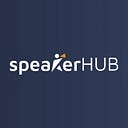Preparing for Different Types of Speaking Engagements
Whether you’re an experienced speaker or just starting, preparing for different types of speaking engagements is crucial for success. Understanding the key objectives of your presentation and tailoring your content to match the audience’s expectations can significantly improve your public speaking skills. Each speaking engagement has its unique demands, and being well-prepared can help you engage the audience effectively.
First, identify the specific goals you aim to achieve with your presentation. Are you looking to inform, persuade, or entertain? Knowing your objectives will guide your preparation process. Next, study the type of speaking engagement you’re preparing for. From workshops to keynote speeches, different formats require different approaches and public speaking skills.
Mental preparation is just as important as content preparation. Building confidence through practice and familiarizing yourself with your material will help you deliver an engaging performance. Tailoring your content to the audience’s needs ensures that your message resonates well, making your delivery more effective.
In this article you will learn how to prepare for each type of speaking engagement to ensure you deliver compelling and impactful presentations.
Workshops
Workshops are highly interactive sessions where the focus is on teaching skills or concepts through active participation. Interactive workshops are centered around engaging participants actively. Here, hands-on activities and real-time feedback are pivotal. To excel in these settings, prepare interactive exercises and encourage participant involvement to create a dynamic learning environment. Here are some preparation tips:
- Develop Engaging Activities: Plan hands-on activities that involve the audience, such as group exercises, role-playing, or problem-solving tasks.
- Prepare Materials: Ensure that all necessary materials, such as handouts, worksheets, or digital tools, are ready and appropriate for the size and type of audience.
- Set Clear Objectives: Make sure the goals of the workshop are clear and achievable within the available time.
Seminars
Seminars are typically more formal and informative than workshops, focusing on delivering detailed content to an audience that is there to learn. For educational seminars, a more formal tone is often suitable. These sessions usually focus on disseminating information, so a well-structured presentation and supporting materials are crucial. Aim to blend informative content with Q&A segments to maintain engagement and clarity.
- Structure Your Content: Organize your material in a logical flow that builds on each concept progressively.
- Include Q&A Sessions: Allocate time for questions to ensure that the audience has the opportunity to clarify points and engage more deeply with the topic.
- Use Visual Aids: Enhance your presentation with visual aids such as slideshows, charts, and videos to help illustrate complex information.
Keynote Speeches
Keynote speeches are high-profile opportunities that set the tone for events and are designed to inspire and motivate the audience. Inspiring keynote speeches are designed to set the tone for an event. It’s your opportunity to captivate and motivate your audience from the start.
- Craft a Compelling Narrative: Develop a strong, cohesive narrative that captures the audience’s attention and conveys your message with clarity and impact.
- Practice Delivery: Focus on your delivery style, including your pacing, intonation, and body language to maximize your stage presence.
- Make It Relatable: Tie your message to real-world scenarios or stories that resonate with the audience’s interests and experiences.
Panel Discussions
Panel discussions involve multiple speakers and are centered around discussions on specific topics, offering diverse perspectives. Lastly, engaging panel discussions offer a platform for expert dialogue and audience interaction. In these settings, effective speaker strategies include preparing concise points, being an active listener, and contributing to a balanced, dynamic conversation. By understanding and adapting to the unique demands of each format, you can deliver impactful and memorable contributions.
- Understand the Format: Clarify your role and the structure of the panel to prepare appropriate remarks and questions.
- Research Fellow Panelists: Learn about the other panelists’ backgrounds and viewpoints to better interact and engage with them during the discussion.
- Prepare Key Points: While panels are inherently dynamic, having prepared points can help you contribute effectively and pivot discussions back on track if necessary.
General Tips for All Formats
- Understand Your Audience: Research who will be attending the event. Tailoring your content to the audience’s knowledge level and interests can make your presentation more engaging.
- Rehearse Thoroughly: Regardless of the format, practice your presentation multiple times. Familiarity with your content will boost your confidence and improve your delivery.
- Prepare for Technical Issues: Always have a backup plan for potential technical problems. Bring backups of your materials and be ready to adapt if necessary.
Conclusion
Adapting your approach to suit different types of speaking engagements is key to ensuring that your message is not only heard but resonates with your audience. By understanding the unique requirements of workshops, seminars, keynote speeches, and panel discussions, you can prepare effectively and maximize your impact as a speaker. Remember, the goal is not just to communicate information, but to inspire, educate, and engage your audience no matter the format.
This was originally posted on SpeakerHub Skillcamp.
